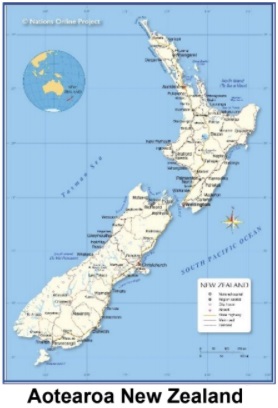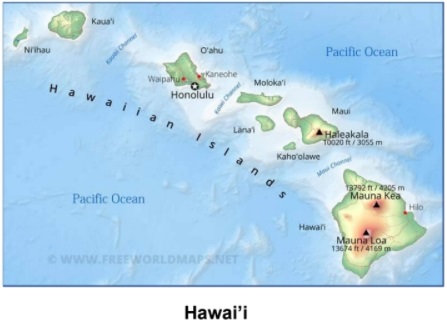The COVID-19 Island Insights Series is an initiative led by the Strathclyde Centre for Environmental Law & Governance (SCELG) and the Institute of Island Studies (IIS) at the University of Prince Edward Island (UPEI) in collaboration with Island Innovation. The series aims to bring together critical assessments of how specific islands around the world have performed during the COVID-19 pandemic and the extent to which their recovery plans are able to promote long term resilience and sustainability.
Every two weeks, Island Innovation will release COVID-19 Island Insights Series from two different islands. This week we are focusing on New Zealand and Hawai’i. The piece on New Zealand is authored by Gerard Prinsen and the piece on Hawai’i by Marina Karides.
In the USA, a lack of cohesive federal policy left states to determine their own responses to the pandemic. The island state of Hawai’i accordingly put in place some of the most aggressive policies in the country, including tight regulation of travel. While this has ensured comparatively low positivity rates, the economic cost to the tourism industry has been significant, causing widespread unemployment. But it is possible that the pandemic has provided an opportunity to reexamine the industry, which many residents in Hawai’i believe is being run for tourists at the expense of locals, and to explore diversification of the economy.
Aotearoa New Zealand meanwhile is viewed worldwide as a shining example of how adoption of an elimination rather than mitigation strategy, with severe and swift response measures, can succeed. Overall, the economy impressively rebounded after the impact of the country’s initial lockdown, although some sectors, which rely on incoming international travelers, such as tourists, students and seasonal agricultural workers continue to suffer. Nevertheless, the mood in Aotearoa New Zealand appears generally to be one of anxious relief. Whether the pandemic will inspire any significant review of policy remains to be seen. Many simply want to return to the pre-pandemic status quo, although it seems there could be a renewed drive to pursue Aotearoa New Zealand’s pre-pandemic sustainability and resilience discussions with more vigour and urgency than before.
The COVID-19 Island Insights Series will lead to a series of “thematic primers” aimed at assisting policy makers and wider island related stakeholders to encourage islands to move to a more resilient and sustainable future.
List of islands covered by the COVID-19 Island Insights Series (list subject to change):
- Åland Islands (Finland)
- Barbados
- Croatian Islands
- Egadi Islands (Italy)
- Grenada
- Guam (USA)
- Hawai’i (USA)
- Iceland
- Jamaica
- Lesvos (Greece)
- Malta
- Mauritius
- New Zealand
- Newfoundland (Canada)
- Okinawa (Japan)
- Prince Edward Island (Canada)
- Saint Helena (UK)
- Seychelles
- Shetland Islands, Scotland (UK)
- Solomon Islands
- Trinidad & Tobago
Click here to view the Strathclyde Centre for Environmental Law & Governance (SCELG) website.
Click here to view the University of Prince Edward Island (UPEI) website.
Click here to view the University of Strathclyde website.

Island Innovation is a social enterprise and digital media company at the intersection of sustainable development and communications, offering specialised services across various sectors. We bring together the private sector, government, utilities, NGOs and universities to advance innovation for sustainability and prosperity in islands worldwide.



















